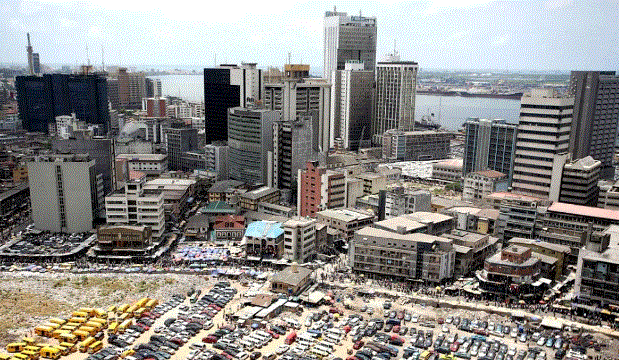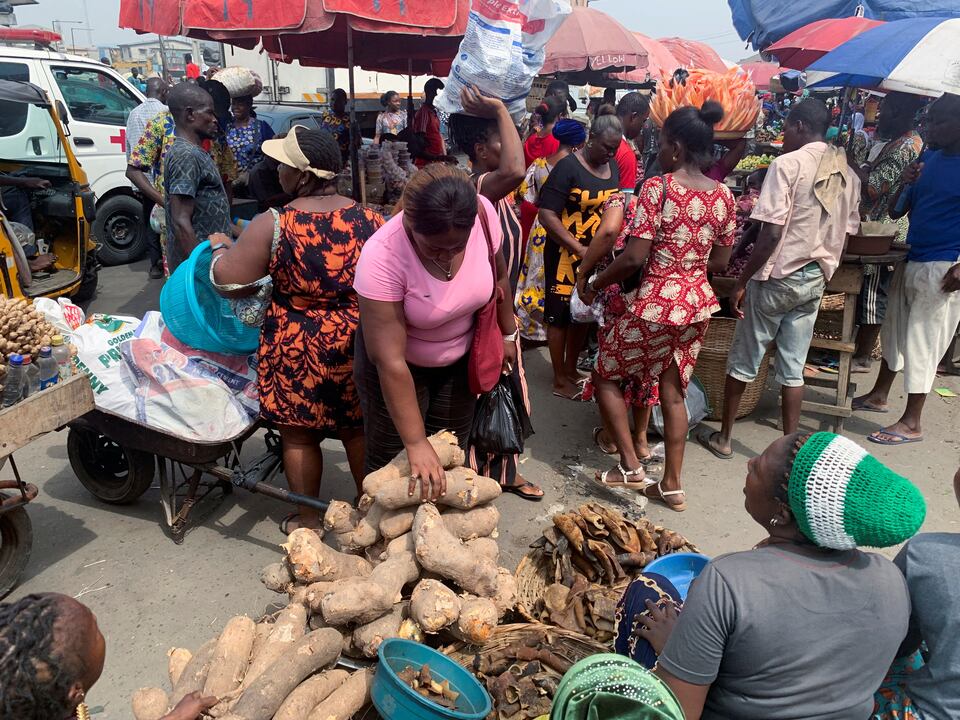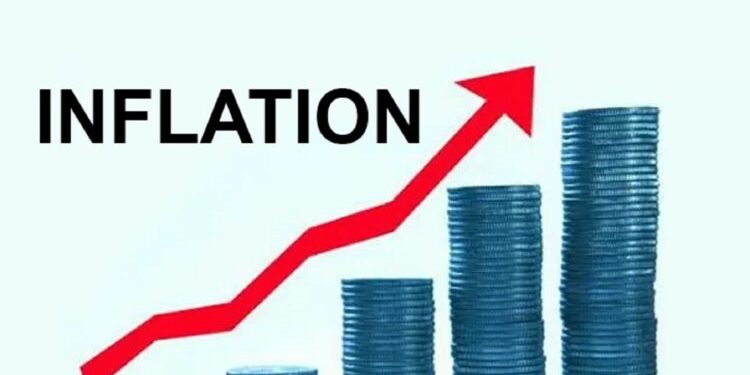Nigeria’s inflationary woes have deepened, reaching their highest level in almost three decades, according to the latest data from the National Bureau of Statistics (NBS), the country’s official statistical agency. The report reveals that in March, Nigeria’s inflation rate surged to 33.2%, marking a further increase of 1.5% from the preceding month.

The staggering inflation rate is primarily fueled by the relentless surge in the cost of essential food items, including bread, eggs, rice, and dairy products. These staple food items have witnessed substantial price hikes, placing significant strain on the budgets of millions of Nigerians already grappling with economic challenges.
Additionally, the rising cost of energy exacerbates the inflationary pressure, with manufacturers bearing a substantial portion of their expenses on power. Nigeria’s persistent energy challenges, characterized by inadequate power supply and high electricity tariffs, have compelled businesses to allocate a considerable portion of their budgets to alternative energy sources, further driving up production costs.
The deteriorating inflationary environment poses significant challenges for both consumers and businesses across the country. As the cost of living continues to soar, households face mounting financial pressures, diminishing their purchasing power and eroding their standard of living. Similarly, businesses grapple with escalating operational costs, hampering profitability and stifling economic growth.

The Nigerian government is confronted with the daunting task of implementing effective measures to curb inflationary pressures and mitigate the adverse impact on the economy. Addressing the root causes of inflation, including supply chain disruptions, currency depreciation, and fiscal deficits, requires decisive policy interventions and comprehensive structural reforms.
Efforts to bolster agricultural production, enhance food security, and promote sustainable energy solutions are essential to alleviate the inflationary burden on Nigerian households and businesses. Additionally, prudent fiscal management, sound monetary policies, and measures to stimulate investment and economic diversification are critical to fostering macroeconomic stability and sustainable growth.
The alarming escalation of inflation underscores the urgent need for coordinated action by government authorities, policymakers, and stakeholders across the public and private sectors. Collaborative efforts aimed at addressing the structural challenges undermining Nigeria’s economic resilience are imperative to charting a path towards sustainable development and prosperity for all citizens.
As Nigeria grapples with the formidable task of taming inflation and revitalizing its economy, concerted efforts to implement bold reforms and innovative strategies are essential to navigating the challenging terrain ahead. By fostering a conducive environment for investment, entrepreneurship, and inclusive growth, Nigeria can overcome its current economic challenges and unlock its full potential for progress and prosperity.















